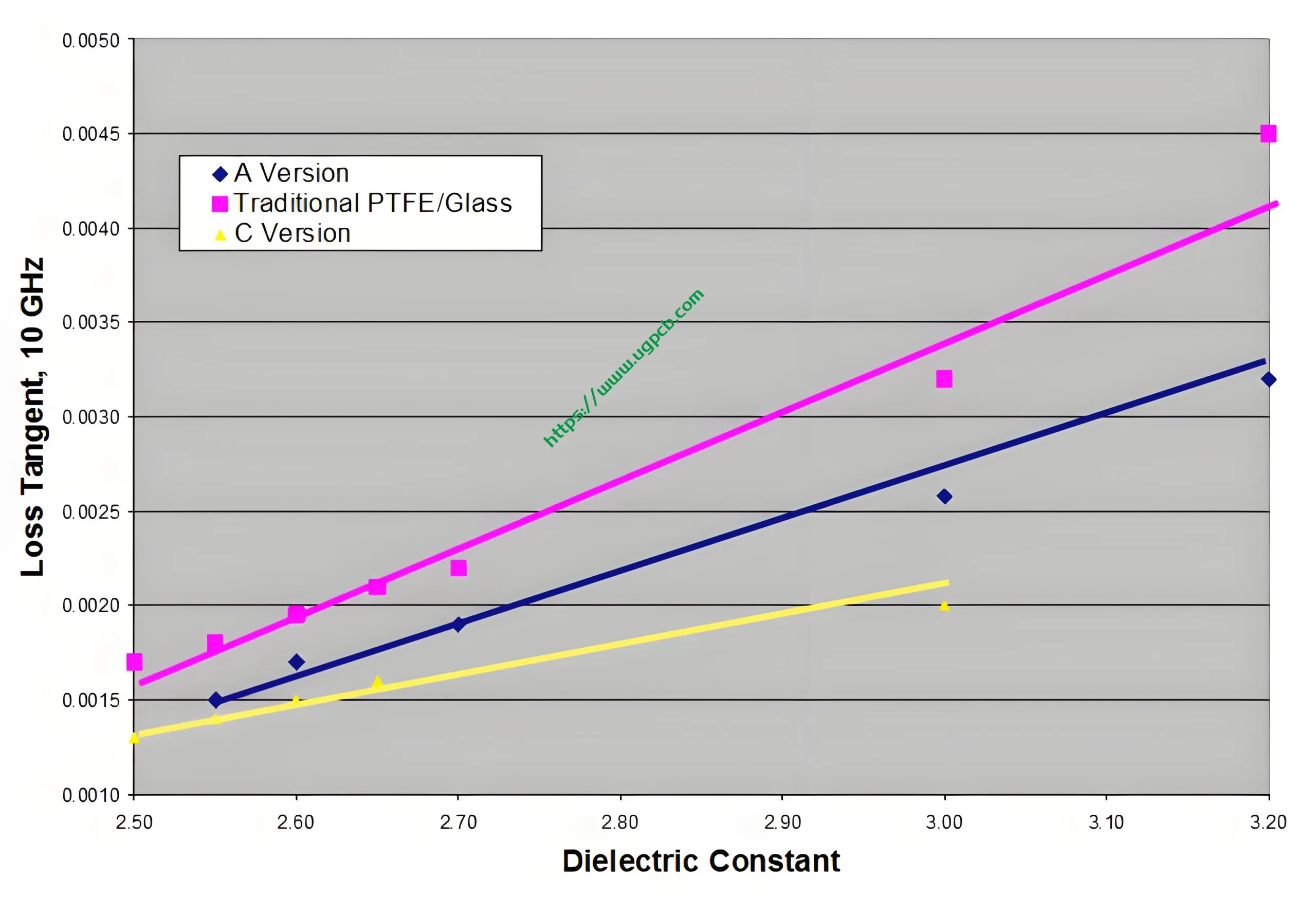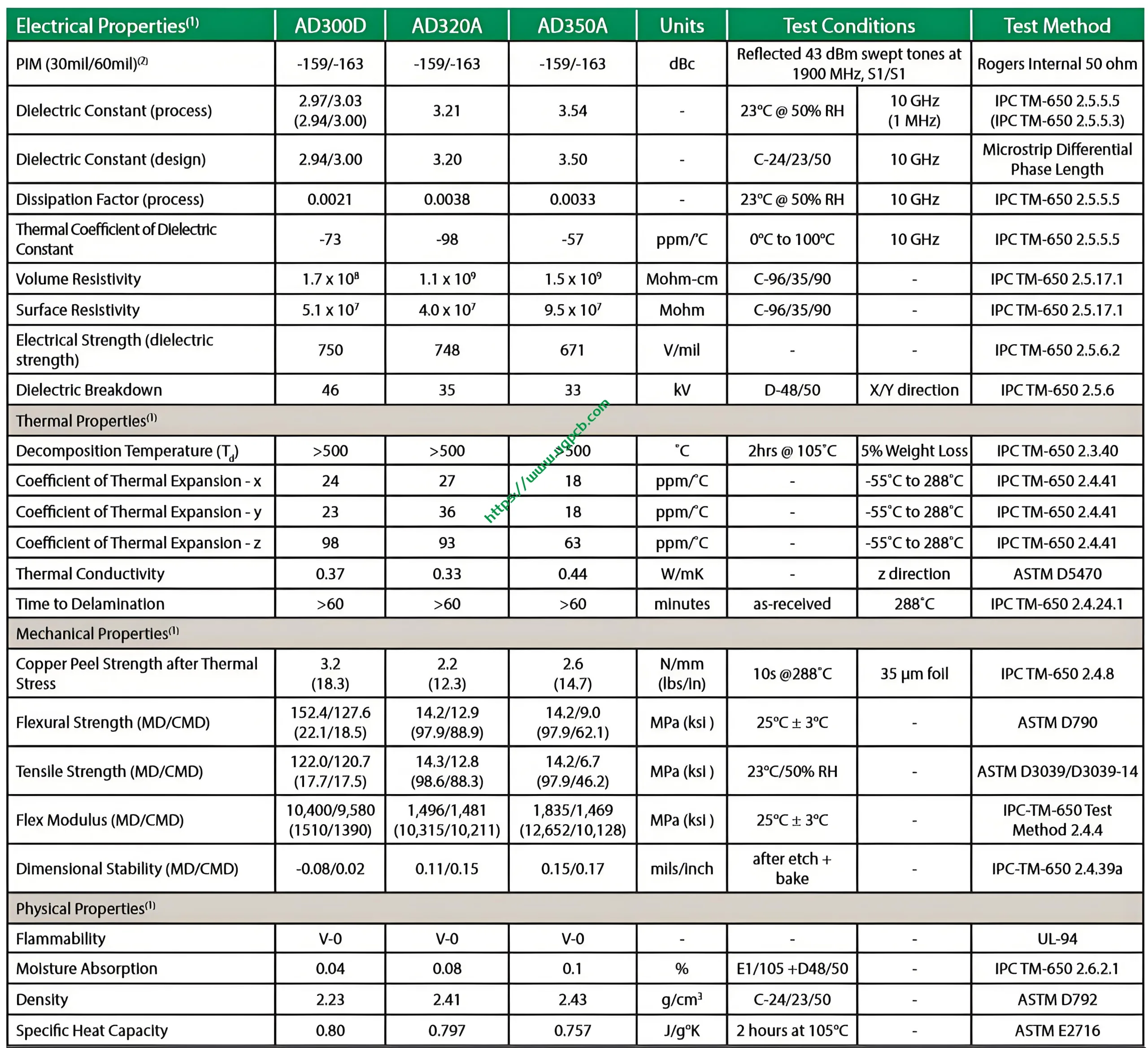Роджерс серии AD300: Premium High-Frequency PCB Materials for Antenna Applications
Overview of Rogers AD300 Series
The Rogers AD300 series stands as a testament to advanced high-frequency printed circuit board (УГКПБ) materials specifically designed for antenna applications. These materials ingeniously blend fluoropolymer resin, meticulously selected ceramic fillers, and robust glass fiber support structures. This combination yields a suite of dielectric laminates characterized by minimal loss, exceptional mechanical resilience, consistent dielectric constants, and suppressed Passive Intermodulation (PIM) levels.
Comparative Analysis: Rogers AD300D vs. AD300C
A key distinction between the Rogers AD300D and AD300C lies in their respective dielectric constants and nominal thicknesses. The AD300A, being a second-generation product, introduces variations in Dissipation Factor (DF), Coefficient of Thermal Expansion (КТР), and Temperature Coefficient of Dielectric Constant (TCDK) compared to its predecessor, AD300C. A detailed feature comparison is illustrated below:
 Key Product Features
Key Product Features
- Precision Dielectric Control: With tightly controlled dielectric constants (AD250C ± 0.04, AD255C, AD260A ± 0.04), these materials ensure predictable signal propagation.
- Minimal Loss at Communication Frequencies: An impressive low loss tangent of 0.0014 at 10GHz minimizes signal attenuation.
- Enhanced Thermal Conductivity: Superior to traditional PTFE/glass fiber composites, facilitating efficient heat dissipation.
- Broad Frequency and Temperature Stability: Maintains consistent dielectric properties across a wide operational range.
- High Peel Strength Copper Foils: Both reverse processed and im series copper foils offer exceptional adhesion, suitable for conventional manufacturing processes.
Advantages of Rogers AD300 Series
- Uniform Antenna Performance: Ensures high consistency in antenna characteristics.
- Low Insertion Loss & High Efficiency: Promotes reduced signal loss and heightened antenna efficiency.
- Increased Power Handling Capacity: Supports higher power densities without compromising performance.
- Stable Band Performance: Remains unaffected by weather conditions, ensuring reliability.
- Ultra-Low PIM Values: As low as -165 dBc, guaranteeing minimal signal interference.
Typical Applications
- Base Station & Distributed Antenna Feed Networks: Ideal for demanding telecom infrastructure requirements.
- Commercial Antennas: Suitable for diverse commercial communication needs.
- Digital Audio Broadcasting (DAB): Ensures clear and efficient audio transmission.
- Patch Antennas: Supports applications in GNSS, GPS, and SDAR systems.
 ЛОГОТИП УГКПБ
ЛОГОТИП УГКПБ



